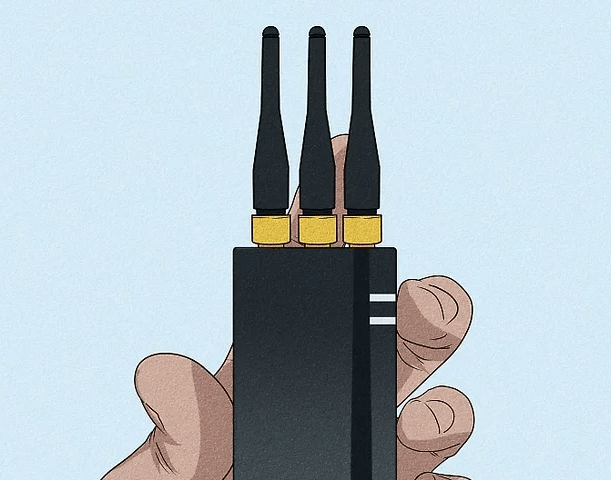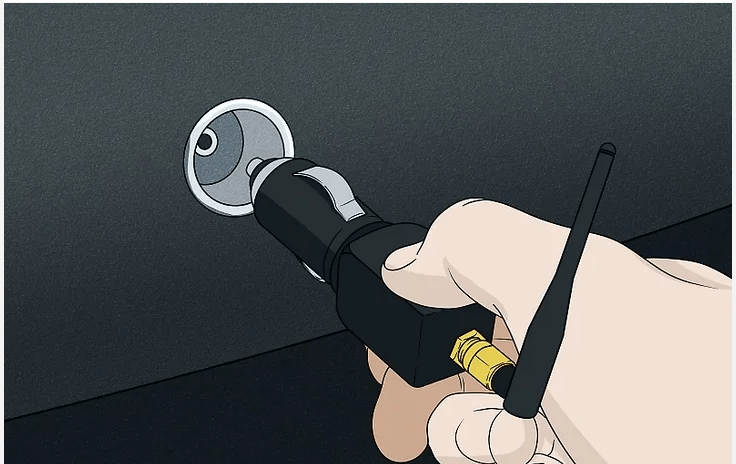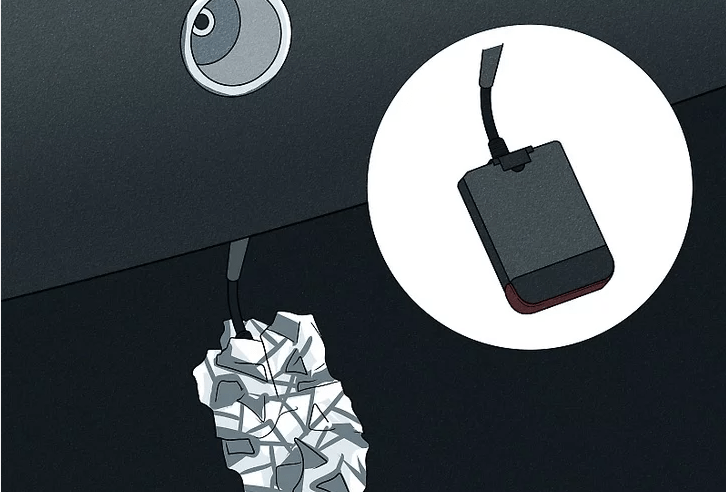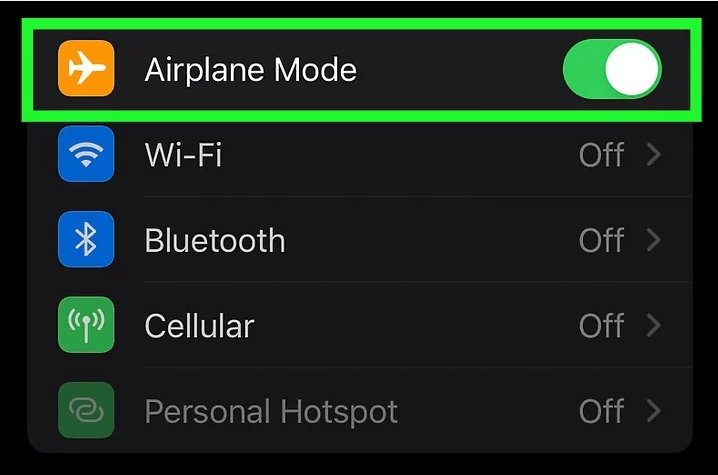Ways to Prevent Vehicle GPS Tracking?

If you’re concerned about someone using your vehicle’s GPS tracker to monitor your movements, there are ways to prevent it without the need for costly and illegal GPS tracker blockers. While GPS trackers can be useful for navigation, protecting your privacy is crucial. To help you disable GPS signals and detect GPS trackers for your peace of mind, we’ve compiled a comprehensive guide. Read on to discover effective ways to maintain your privacy while driving.
Utilize a GPS Blocker that Plugs into your Vehicle

By using a plug-in GPS blocker, you can generate an interference signal that disrupts GPS tracking signals in your vehicle. These blockers are easy to use – just plug them into your car’s cigarette lighter or auxiliary power outlet. Once your vehicle is turned on, the blocking device automatically switches on and prevents GPS trackers from monitoring your movements. To disable the blocker, simply turn off your vehicle or remove the device from the power outlet. This is a simple and effective way to maintain your privacy while driving.
1.Before you buy a GPS blocker, be sure to carefully review its specifications to ensure it can cover the range you need.
2.Typically, more expensive GPS blockers have a wider signal-blocking radius compared to lower-priced options.
3.While it is legal to own a GPS blocker, it is illegal to use one in most cases due to the potential to interfere with emergency communications. It is important to use GPS blockers responsibly and in compliance with local laws and regulations.
1.Using a Portable GPS Blocker on the Go

2.Using a Portable Handheld GPS Blocker: How It Works
With a handheld GPS blocker, you have the power to scramble GPS signals from the palm of your hand. Unlike vehicle-mounted blockers, you can manually activate the device with the press of a button or flip of a switch. However, it’s important to be mindful of your usage and turn off or deactivate the device when you’re not driving to avoid disrupting GPS and cell signals in your surroundings.
It’s important to note that operating a GPS blocker is illegal in most cases due to the potential for it to interfere with emergency communications. If you’re contemplating buying one, it’s essential to keep this in mind.
3.Using Aluminum Foil to Shield GPS Device

One effective way to disrupt GPS signals from a device is by wrapping it in an electrically conductive metal such as aluminum foil. This method is cost-effective, simple, and easily accessible, but only works if you know the location of the GPS tracker and can physically access it to wrap it in foil.
1.A metal box can also effectively block your vehicle’s GPS tracker, assuming it can be easily removed and put into a box.
2.If you suspect there’s a hidden GPS device in your car, search the underbody, under the hood, in data ports, and under the seats or carpet to find, remove, and wrap it.
4.Remove the GPS tracker’s battery
If the GPS tracker has no battery, it can’t transmit a signal. First, locate the GPS tracker. If it’s connected to your vehicle by a magnet or a data connector plug, just tug the device free and remove the battery to stop the signal. Afterward, dispose of the battery and GPS device to ensure it doesn’t continue to transmit your location
If the GPS tracker is hardwired to your vehicle, it’s best to have a professional mechanic remove it to avoid causing electrical problems to your car.
5.Disable location tracking on your cell phone.

Cell phones reveal your location as easily as a GPS system. The easiest way to mask your location is to turn on “Airplane Mode” (this turns off the cell and WiFi radios). Then, turn off your location services, reporting, or history in your phone’s settings app to turn off the GPS tracking
1.Aircraft Mode can be used to disable the GPS radio on certain phones, effectively preventing tracking. For added assurance, turning off the phone and removing the battery will eliminate any possibility of being tracked. However, this means that the phone will be completely unusable while powered off.
2.Despite the availability of cell phone jammers, it is important to note that their use is illegal in the United States. In addition to being illegal, jammers also have the potential to disrupt emergency communication systems, creating a public safety risk. As a result, using a jammer to block GPS signals is not recommended.
3.Overall, it is important to be aware of the potential privacy concerns associated with GPS tracking and take appropriate measures to protect oneself. While using Airplane Mode or turning off the phone may be effective, it is important to carefully consider the drawbacks and limitations of each method.
6.Search the exterior of your vehicle.

GPS trackers can be taped or magnetically attached to the outside of your car. Search for suspicious looking boxes, probably with antennas. Use a flashlight to look in hard-to-reach areas like the undercarriage or in the wheel wells. Here are some of the most likely places to find a tracker:
1.The undercarriage, particularly on or near the fuel tank.
2.Inside the wheel wells.
3.Underneath the front or rear bumpers.
4..On the roof (if you have a tall SUV or truck).
5.Inside the sunroof’s retraction slot.
6.Under the hood (most likely behind the radiator, by the batteries, in the air ducts, or in the air filter).
7.Examine the interior of your vehicle.

GPS trackers can be discreetly plugged in or hidden inside your car too. This is probably only the case if you suspect that someone you know (who has access to your car) planted a device, like a spouse or an ex. Search these common places where they might hide one:
1.In the diagnostic port (usually to the bottom left of the steering wheel).
2.Under the seats (or even inside the upholstery).
3.Underneath floor mats.
4.Underneath the carpet.
5.In the trunk or hatchback.
6.Plugged into the data collector (usually on the underside of the steering wheel).
8.Find the GPS device with a handheld locator.

This handy tool detects outgoing GPS signals from your vehicle. Use one of these if you can’t visually find the GPS device inside or outside your vehicle. Stand within 5 metres (16 ft) of your vehicle and do a full scan. If a GPS signal is detected, the locator will beep and flash.
1.Scan your vehicle multiple times since not all GPS systems transmit a constant signal.
2.Handheld GPS locators can be found online and are sometimes called electric sweepers.
3.Locating devices will find an active or real time GPS tracker, but can’t find a passive or logger tracker.

It is against the law in the United States to interfere with GPS devices that have been installed in vehicles for law enforcement purposes. Therefore, tampering with or blocking these devices is strictly prohibited. If you come across a GPS device and are unsure of its legal status, it is best to contact your local law enforcement agency to seek clarification.
It is important to note that any attempts to block or scramble GPS signals can potentially disrupt authorized radio communications, which is considered a violation of federal law. Therefore, it is important to exercise caution and refrain from engaging in any activities that may interfere with the proper functioning of GPS devices or other communication systems.

When dealing with GPS devices that are attached to a vehicle with a magnet or plug, they can be safely removed by the owner themselves. However, if the GPS device is hardwired into the vehicle’s electrical system, it is recommended to seek assistance from a professional to ensure the device is safely and correctly removed.
It is important to note that some GPS trackers are designed to store location information rather than transmitting it in real-time. In this case, the aforementioned GPS blocking tips will not be effective in preventing tracking. It is recommended to seek assistance from a professional mechanic or GPS installer if you suspect there is a GPS tracker in your vehicle and are unable to locate it yourself.
Consulting a professional is always the safest option when it comes to removing a GPS tracker from your vehicle, especially if you are uncertain about the installation or the legality of the device. A qualified mechanic or GPS installer can ensure that the device is removed safely and without causing any damage to your vehicle.








